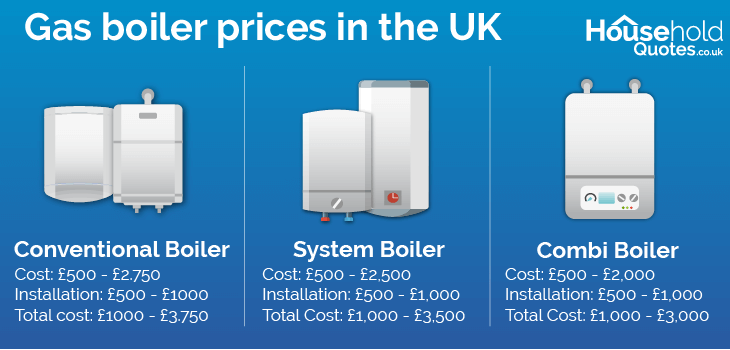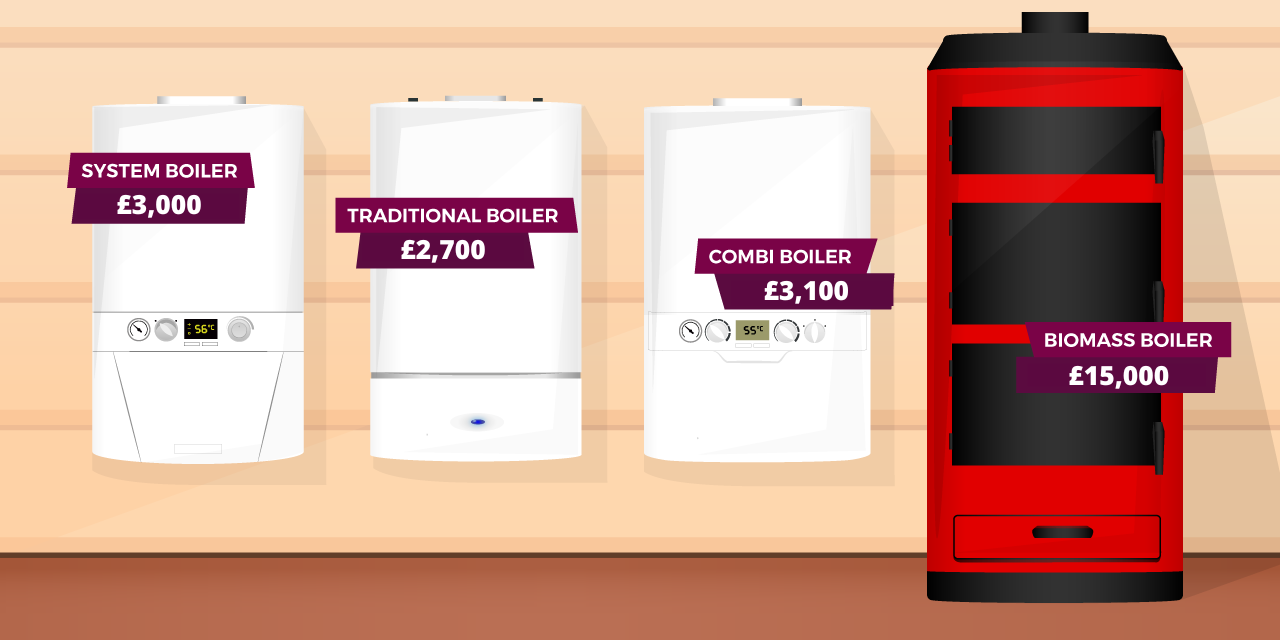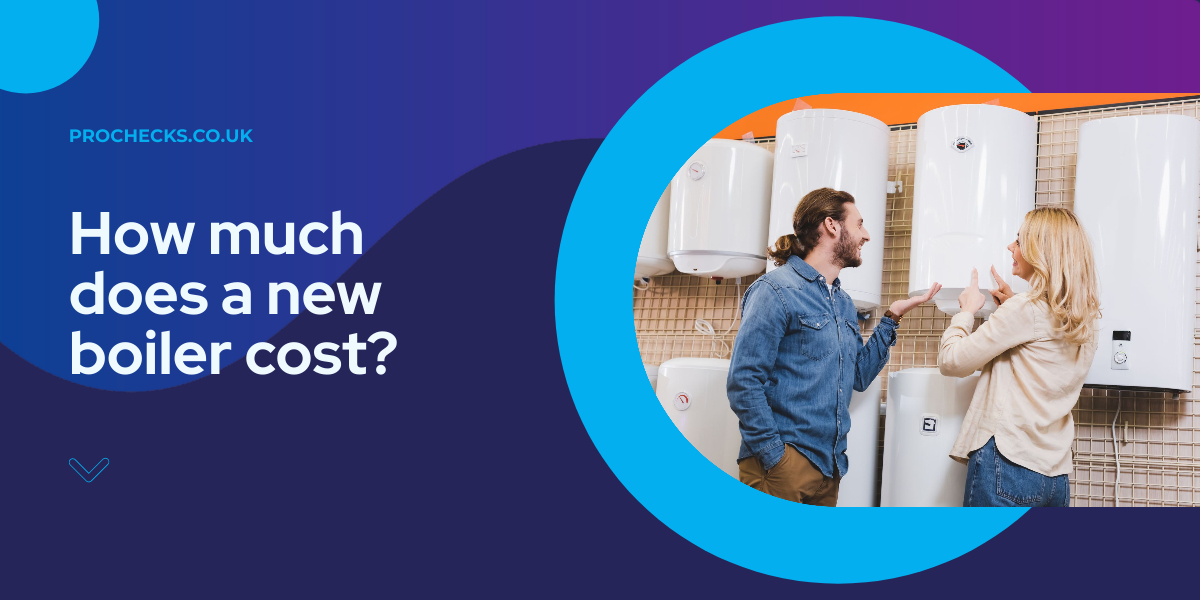How Much Does A Boiler Cost For A House

Frequently Asked Questions: Boiler Costs for Your Home
Choosing the right boiler and understanding the associated costs can seem daunting. This FAQ addresses common questions to help you make an informed decision.
Question 1: What is the average cost to install a new boiler in a house?
The average cost to install a new boiler in a house typically ranges from $3,000 to $10,000. This is a broad range because several factors influence the final price, including:
- Boiler Type: Combi boilers, regular (conventional) boilers, and system boilers have different price points.
- Boiler Size (BTU output): Larger homes require boilers with higher BTU output, which are more expensive.
- Installation Complexity: Replacing an existing boiler in the same location is usually cheaper than a new installation or relocation.
- Brand and Model: Premium brands and models with advanced features often command higher prices.
- Labor Costs: Installation costs vary depending on your location and the plumber's hourly rate.
- Additional Work: This can include new pipework, venting upgrades, or electrical work.
It's crucial to obtain multiple quotes from qualified HVAC professionals to get an accurate estimate for your specific situation.
Question 2: What are the different types of boilers and how do their costs compare?
There are three main types of boilers commonly used in residential settings:
- Combi Boilers (Combination Boilers): These are the most popular type, providing both heating and hot water on demand. They are generally more compact and energy-efficient than other types. Cost: $2,000 - $5,000 (unit only). They're a great choice for smaller homes or apartments.
- Regular Boilers (Conventional Boilers): These boilers require a separate hot water tank and often a feed and expansion tank. They are typically used in older homes with existing traditional heating systems. They are less efficient, and older models can be quite large. Cost: $1,500 - $4,000 (unit only).
- System Boilers: Similar to regular boilers, system boilers also require a hot water tank, but the main components, like the pump and expansion vessel, are built into the boiler itself. This makes installation easier and more streamlined. Cost: $2,000 - $4,500 (unit only). They're suitable for homes with higher hot water demand.
Remember that these are unit costs only. Installation charges will be added to these prices and will vary.
In general, combi boilers are on the higher end because of their complexity and dual functionality. Regular boilers are often the least expensive upfront, but consider the long-term efficiency implications.
Question 3: What factors influence the overall cost of boiler installation?
Besides the boiler itself, several factors can significantly affect the overall cost of installation:
- Installation Location: Moving the boiler to a new location requires more extensive pipework, gas line modifications, and potentially new venting, increasing labor costs. Replacing it in the same spot is usually the least expensive.
- Existing Pipework: If your existing pipework is old, corroded, or incompatible with the new boiler, it may need to be replaced. This can add significantly to the cost.
- Venting Requirements: Modern high-efficiency boilers often require new venting systems, such as PVC pipes that run horizontally through an exterior wall. The cost of venting depends on the length and complexity of the run. Condensing boilers will need a suitable condensate drain.
- Electrical Work: New boilers require a dedicated electrical circuit. If one doesn't exist or needs upgrading, an electrician will need to be hired.
- Removal and Disposal of Old Boiler: The cost of removing and disposing of your old boiler can range from $100 to $500, depending on the size and weight of the unit and local disposal regulations.
- Permits and Inspections: Many jurisdictions require permits and inspections for boiler installations. The cost of permits can range from $50 to $500 or more, depending on your location.
- Smart Thermostat Integration: Integrating a smart thermostat can improve energy efficiency but will add to the initial cost.
Always get a detailed written estimate that breaks down all the costs involved before agreeing to the installation.
Question 4: Can I save money by installing a boiler myself?
While it might be tempting to save money by installing a boiler yourself, it is strongly discouraged and, in many places, illegal. Boiler installation involves working with gas lines, electrical systems, and potentially hazardous materials. Incorrect installation can lead to:
- Gas leaks: A gas leak can cause explosions, fires, and carbon monoxide poisoning.
- Carbon monoxide poisoning: Carbon monoxide is a colorless, odorless gas that can be deadly.
- Water damage: Improperly connected plumbing can lead to leaks and water damage.
- Voided warranty: Most boiler manufacturers require professional installation to maintain the warranty.
- Safety hazards: Incorrect electrical wiring can cause electrocution.
- Code violations: Installing a boiler without the necessary permits can result in fines and penalties.
It is best to hire a licensed and qualified HVAC professional for boiler installation. They have the training, experience, and tools to ensure the job is done safely and correctly. The long-term costs of a DIY installation that goes wrong far outweigh any potential savings.
Question 5: How can I reduce the cost of a new boiler installation?
Here are several ways to potentially reduce the cost of a new boiler installation:
- Get Multiple Quotes: Obtaining quotes from at least three different HVAC contractors allows you to compare prices and services.
- Choose a Suitable Boiler Size: Oversized boilers waste energy and cost more to operate. Have a professional calculate the appropriate BTU output for your home.
- Keep the Boiler in the Same Location: Moving the boiler is one of the most significant cost drivers. Keeping it in the same location minimizes the need for new pipework and venting.
- Schedule Installation During Off-Peak Season: HVAC contractors are often less busy during the spring and fall, potentially leading to lower labor costs.
- Consider a Less Expensive Boiler Brand: While it's essential to choose a reputable brand, you don't necessarily need the most expensive model. Research different brands and models to find one that meets your needs and budget.
- Ask About Rebates and Incentives: Many utility companies and government agencies offer rebates and incentives for installing high-efficiency boilers. Check with your local utility company and state energy office for available programs.
- Negotiate the Price: Don't be afraid to negotiate the price with HVAC contractors. They may be willing to offer a discount, especially if you are paying cash.
- Finance Options: Consider available financing options if you're unable to pay upfront. Many HVAC companies offer financing plans.
Remember to balance cost savings with quality and efficiency. Choosing the cheapest option may not be the best long-term investment.
Question 6: What are the ongoing costs associated with owning a boiler?
Besides the initial installation cost, it's important to consider the ongoing costs of owning a boiler:
- Fuel Costs: Boilers typically run on natural gas, propane, or oil. Fuel costs can fluctuate depending on market conditions. Choose an energy-efficient boiler to minimize fuel consumption.
- Maintenance: Regular maintenance is crucial to keep your boiler running efficiently and prevent breakdowns. Schedule annual servicing by a qualified technician. The cost of annual maintenance can range from $100 to $300.
- Repairs: Boilers may require occasional repairs, such as replacing worn parts or fixing leaks. The cost of repairs can vary depending on the nature of the problem.
- Electricity Costs: Boilers require electricity to power the pump and controls. The electricity cost is usually minimal but should be factored into your overall expenses.
- Insurance: Boiler systems are covered under most homeowners insurance policies. It’s useful to review your coverage for potential damage and breakdown scenarios.
- Potential Replacements: Plan for the eventual replacement of your boiler. The lifespan of a well-maintained boiler can be 15-20 years, but it's wise to start budgeting for a replacement as it ages.
Regular maintenance is key to minimizing these ongoing costs and extending the life of your boiler. Small maintenance issues can potentially save you from larger and more expensive repairs down the road.
Question 7: How do I choose the right boiler for my house?
Selecting the right boiler for your home involves considering several factors:
- Heating Needs: Determine the appropriate BTU output for your home based on its size, insulation, and climate. A professional can perform a heat load calculation to determine the correct size.
- Hot Water Demand: Consider your household's hot water usage. Combi boilers are suitable for smaller homes with lower hot water demand, while system boilers are better for larger homes with multiple bathrooms.
- Fuel Type: Choose a fuel type that is readily available and cost-effective in your area. Natural gas is often the most common and affordable option.
- Energy Efficiency: Look for boilers with a high AFUE (Annual Fuel Utilization Efficiency) rating. The higher the AFUE, the more efficient the boiler.
- Available Space: Consider the available space for the boiler. Combi boilers are more compact than regular or system boilers.
- Budget: Set a budget and choose a boiler that fits your price range while meeting your heating and hot water needs.
- Warranty: Check the warranty offered by the manufacturer. A longer warranty provides peace of mind and protects you from unexpected repair costs.
- Professional Advice: Consult with a qualified HVAC professional to get personalized recommendations based on your specific needs and circumstances.
Investing time in researching and carefully selecting the right boiler will ensure you have a reliable and efficient heating system for years to come. A qualified technician can provide informed advice and guide you towards the most appropriate solution for your home and lifestyle. Remember to request detailed quotes, and seek out customer testimonials for companies being considered.










